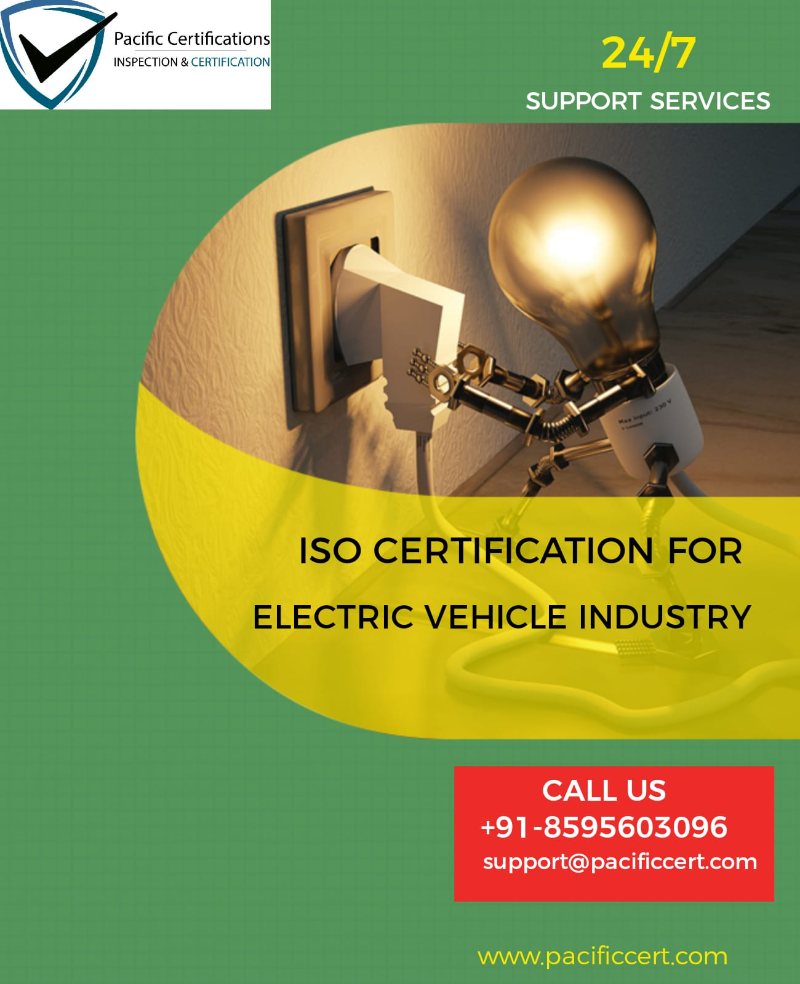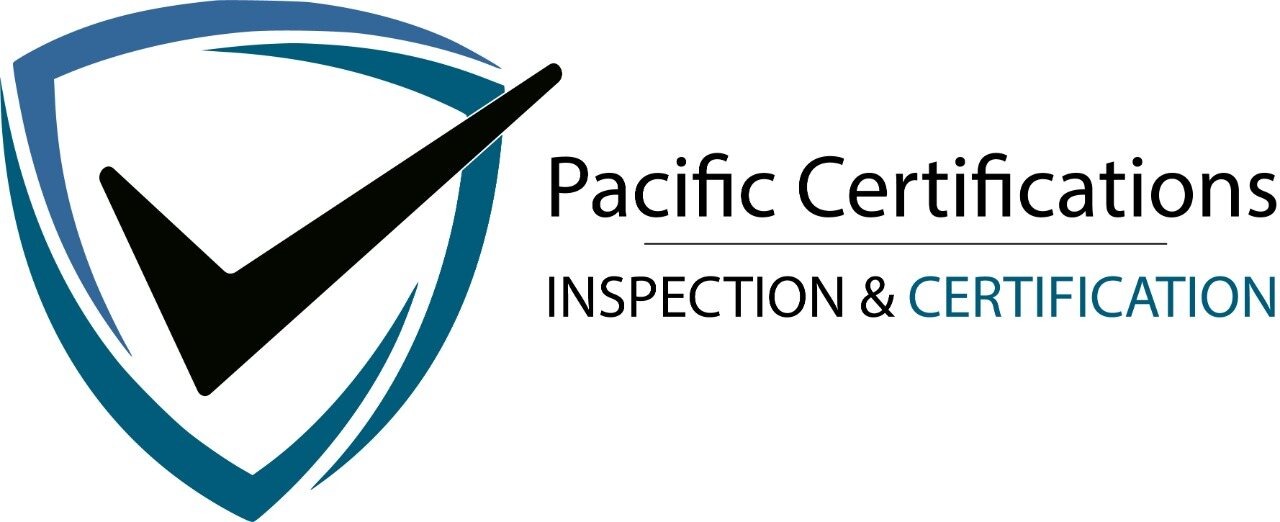ISO Certifications for Electric Vehicle Industry, Requirements and Benefits

Introduction
The electric vehicle (EV) industry is transforming global mobility. From passenger cars and commercial fleets to electric buses, two-wheelers, and charging infrastructure, EV manufacturers and service providers operate across complex value chains involving design, battery systems, power electronics, software, manufacturing, logistics, and after-sales support. Reliability, safety, sustainability, and data integrity are no longer optional—they are central to market acceptance and regulatory approval.
As governments accelerate electrification targets and consumers adopt EVs at scale, the industry faces heightened scrutiny. Battery safety incidents, supply chain disruptions, charging reliability issues, cybersecurity risks, and environmental compliance failures can have widespread consequences. At the same time, EV companies must demonstrate responsible sourcing, energy efficiency, and lifecycle management to meet investor, regulator, and customer expectations.
With global EV sales expected to continue strong growth over the next decade and EVs becoming a core component of national transport strategies, organizations in the EV ecosystem must rely on structured management systems rather than ad-hoc controls. ISO certifications provide internationally recognized frameworks that help EV companies standardize operations, manage risks, protect data, and demonstrate long-term credibility.
In the electric vehicle industry, innovation moves fast—but trust is built through disciplined systems that keep safety, quality, and sustainability aligned.
Quick Summary
ISO certifications help electric vehicle manufacturers, suppliers, and service providers improve product and service quality, ensure worker and user safety, manage environmental impact, secure digital systems, and maintain operational continuity. The most relevant standards include ISO 9001, ISO 14001, ISO 45001, ISO/IEC 27001, ISO 50001, ISO 22301, and ISO 55001. Certification reassures regulators, investors, partners, and customers that EV operations are reliable, compliant, and future-ready.
For more information on how we can assist your electric vehicle operations with ISO certifications, please contact us at [email protected].
Applicable ISO Standards for the Electric Vehicle Industry
The EV industry spans manufacturing, software, energy management, infrastructure, and after-sales services. Multiple ISO standards apply because EV operations involve product quality, occupational safety, environmental responsibility, information security, asset reliability, and business continuity. Below are the key applicable ISO standards for the electric vehicle industry:
ISO 9001: Quality Management Systems (QMS)
ISO 9001 helps EV companies standardize processes across vehicle design, battery integration, manufacturing, quality inspection, delivery, and after-sales service. It supports consistent product performance, reduces defects, and strengthens customer satisfaction in a market where reliability directly affects brand trust.
ISO 14001: Environmental Management System (EMS)
Environmental responsibility is central to the EV value proposition. ISO 14001 provides a framework to manage environmental aspects such as battery waste, resource consumption, emissions from manufacturing, and end-of-life considerations, helping EV companies meet regulatory and sustainability commitments.
ISO 45001: Occupational Health and Safety Management Systems
EV manufacturing and infrastructure work involve electrical hazards, chemical exposure, heavy machinery, and high-voltage systems. ISO 45001 helps identify and control occupational risks, protecting workers in factories, charging installations, and maintenance environments.
ISO 27001: Information Security Management Systems (ISMS)
Electric vehicles rely heavily on software, connectivity, and data. ISO/IEC 27001 helps EV companies protect intellectual property, vehicle telematics, customer data, and backend systems from cyber threats and unauthorized access.
ISO 22301: Business Continuity Management Systems
This standard is relevant for preparing businesses to deal with disruptive incidents. Implementing ISO 22301 can help an EV wholesaling company to plan for, respond to, and recover from disruptions, ensuring continuity of supply and service to customers.
ISO 50001: Energy Management Systems
Energy efficiency is critical in EV manufacturing plants, battery production, and charging infrastructure. ISO 50001 supports systematic monitoring and improvement of energy performance, reducing costs and supporting carbon reduction goals.
Click here to find out more applicable standards to your industry
What are the requirements of ISO Certifications for the Electric Vehicle Industry?
EV companies must implement management systems that address safety, quality, and sustainability, supported by documented procedures and regular monitoring.
Define the scope of EV operations, including manufacturing, battery production, charging systems, and customer service.
Establish policies and objectives for quality, safety, cybersecurity, and environmental impact, backed by leadership commitment.
Conduct risk assessments covering functional safety, battery hazards, supply chain disruptions, and cyber threats.
Develop documented processes for EV design, testing, production, charging infrastructure, and lifecycle management.
Train employees on safety protocols, handling of high-voltage systems, and data security measures.
Maintain compliance records for environmental standards, safety tests, and regulatory approvals.
Implement controls for information security, functional safety validation, and sustainability practices.
Perform internal audits, corrective actions, and management reviews to ensure continual improvement.
Specific requirements:
ISO 9001:2015 – QMS Requirements
Understanding customer, regulatory, and safety requirements
Establishing quality objectives aligned with strategic goals
Planning actions to manage risks and improvement opportunities
Ensuring controlled production and testing processes
Monitoring performance and driving continual improvement
ISO 14001:2015 – EMS Requirements
Identifying environmental aspects of manufacturing and operations
Ensuring compliance with environmental laws and regulations
Implementing controls for waste, emissions, and resource use
Monitoring environmental performance and improvement programs
ISO/IEC 27001:2022 – ISMS Requirements
Identifying information assets and data flows
Assessing cybersecurity and information risks
Implementing access control, encryption, and incident response
Ensuring data backup, recovery, and continual improvement
Tip: EV companies should prioritize ISO 9001 and ISO 26262 to address quality and functional safety first, and then integrate ISO 14001 and ISO/IEC 27001 to meet sustainability and cybersecurity demands.
Looking for ISO certification for your electric vehicle operations? Email us at [email protected].
What are the benefits of ISO Certifications for the Electric Vehicle Industry?
Certification helps EV companies ensure safety, meet regulatory requirements, and gain customer trust, while also supporting innovation and market growth. Below are the key benefits:
Consistent product quality supported by defined design, testing, and production processes.
Safer vehicles and charging systems through compliance with international safety standards.
Lower environmental impact from sustainable resource use, energy efficiency, and emissions control.
Greater market access in regions where ISO certification is a requirement for suppliers.
Increased consumer trust through independent verification of safety, quality, and data security.
Improved resilience against risks such as cyberattacks on EV software and charging networks.
Cost reduction and efficiency gains from standardized processes and optimized resource management.
Stronger brand reputation and competitive advantage in a rapidly expanding global EV market.
Electric vehicle adoption continues to accelerate globally. In 2024, EV sales exceeded 17 million units, making up over 20 percent of new car sales worldwide- International Energy Agency. Projections for 2025 suggest sales could top 20 million units, pushing EVs to represent around one quarter of all car sales- World Economic Forum.
China remains the dominant market, accounting for over half of global EV sales, with growth partly driven by incentives and domestic policies. In Q1 2025 alone, EV sales grew by 42 percent year-on-year, bringing new momentum. Meanwhile, growth rates are moderating in some markets — for example, global EV sales in July showed a 21 percent year-on-year increase, the slowest rate since January.
How Pacific Certifications Can Help?
Pacific Certifications, accredited by ABIS, acts as an independent certification body for electric vehicle companies and service providers. We conduct impartial audits to assess whether management systems and operational practices conform to applicable ISO standards, based strictly on documented evidence and real operational controls.
We support EV organizations through:
Independent certification audits conducted in accordance with ISO/IEC 17021
Objective assessment of manufacturing, infrastructure, and data security controls
Clear audit reporting and certification decisions
Issuance of internationally recognized ISO certificates
Surveillance and recertification audits to maintain certification validity
Contact Is
If you need support with ISO certification for your electric vehicle operations, contact [email protected]or +91-8595603096.
Author: Sony
Read more: Pacific Blogs

